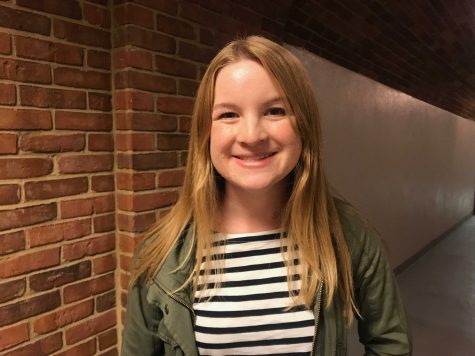Four days into first-year orientation, I walked into Langford Auditorium with a newly- purchased lanyard and a single dominating thought: Vanderbilt is wonderful. In all its ice-breaking efforts and awkward name games, my first few days of college had offered an inspiring introduction to the next four years, and my image of this institution was an optimistic and positive one. Throughout these initial days, I sat back as Vanderbilt projected examples of its academic prowess, extracurricular opportunities and accredited faculty. So I was caught off guard when I took my seat in Langford to view a show that tackled what I hadn’t wanted to consider: the bad at Vandy.
True Life, a show performed by student VUceptors, carefully presents and critically examines common issues on campus. By showcasing specific situations that real students have experienced, it addresses topics like sexual assault, academic and social stress, substance abuse, socioeconomic inequality and personal identity. Throughout the series of skits, I watched upperclassmen embrace vulnerability on stage and lift the curtain that separates their experiences, as students who had seen the bad and the ugly at Vanderbilt, from ours, as first years, who had so far only seen the good and nothing but the good. It was, on an incredibly wide and inclusive level, full disclosure.
I had sat in the same auditorium during the Arts and Science orientation the day before, but now found myself in an entirely unfamiliar position. Where Dean Benton’s words had echoed and inspired, stories from students now laid bare on stage the worst of campus life. I could feel my bright eyes dulling, my naivete slowly but surely dissipating, making way for the stark realities that begged acknowledgement and understanding. As a first-year just setting foot on the path of my collegiate career, these may not have been the words I wanted to hear or the scenes I wanted to see. True Life curtailed our period of ignorance, forcing us to look head-on at what could have been swept under the rug until we experienced it ourselves. But Vanderbilt is better than that.
Although a departure from the thematic optimism that marked the rest of orientation, True Life is what I’ll remember most about my first few days at Vanderbilt. I am proud to attend a school that not only acknowledges but actually presents– on a stage– its greatest faults. By illuminating the dark corners of our culture, True Life activated an awareness of campus issues and underscored our responsibility to alleviate them. As I encounter these pervasive problems throughout my time here, I will have a broader context and more extensive understanding of their effects and implications. But more than this, I will take comfort in knowing that this institution will never erase my experience.
As I rose from my chair and left the auditorium, a feeling came back to me. It had begun to evaporate over the course of the performance, but had since been not only recaptured but also distilled. The thought had grown in its power, its veracity, its honesty. It was more nuanced now, more layered and storied, but it was true all the same– true even more: Vanderbilt is wonderful.



